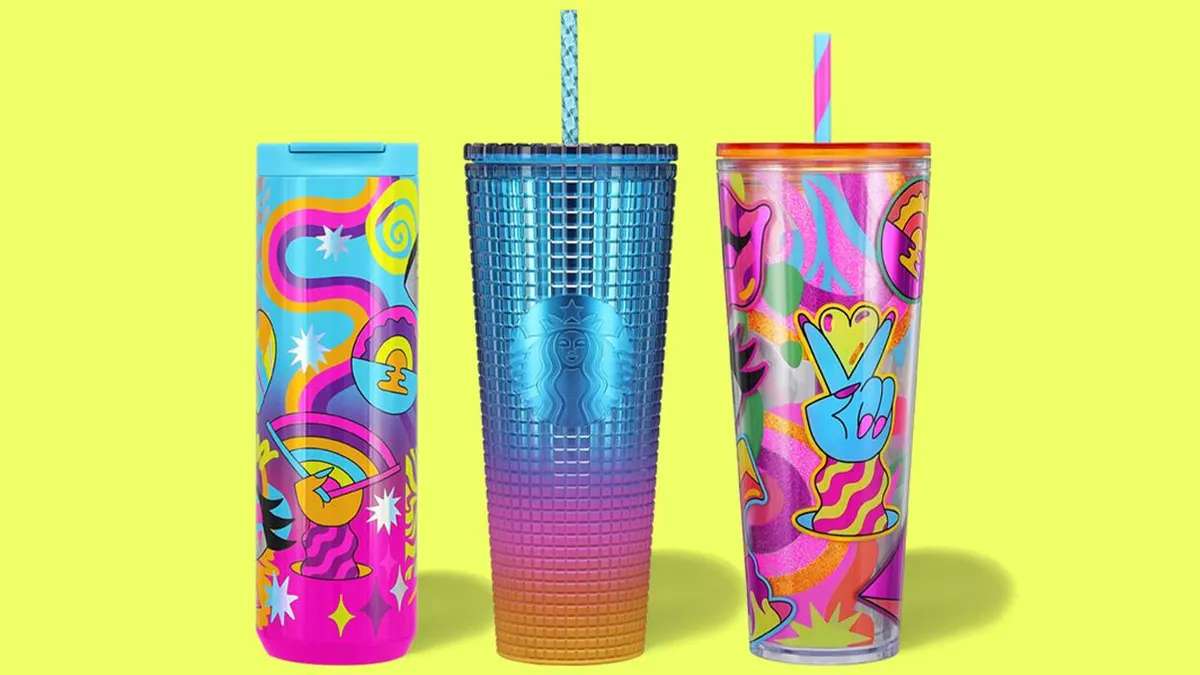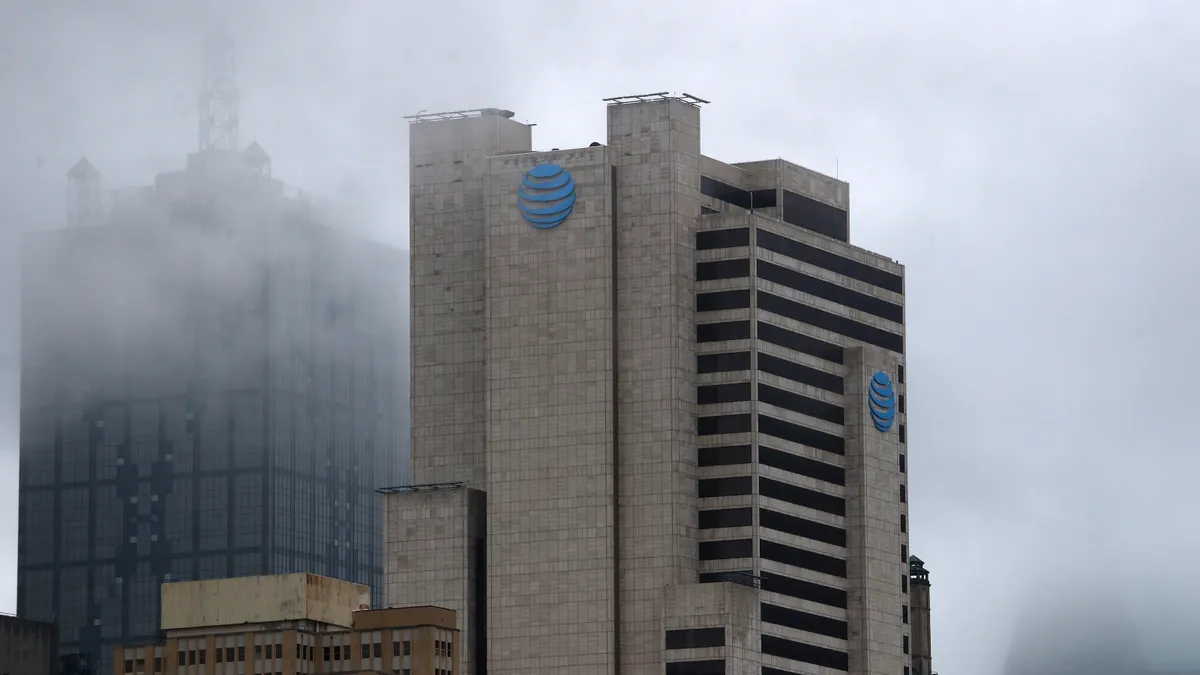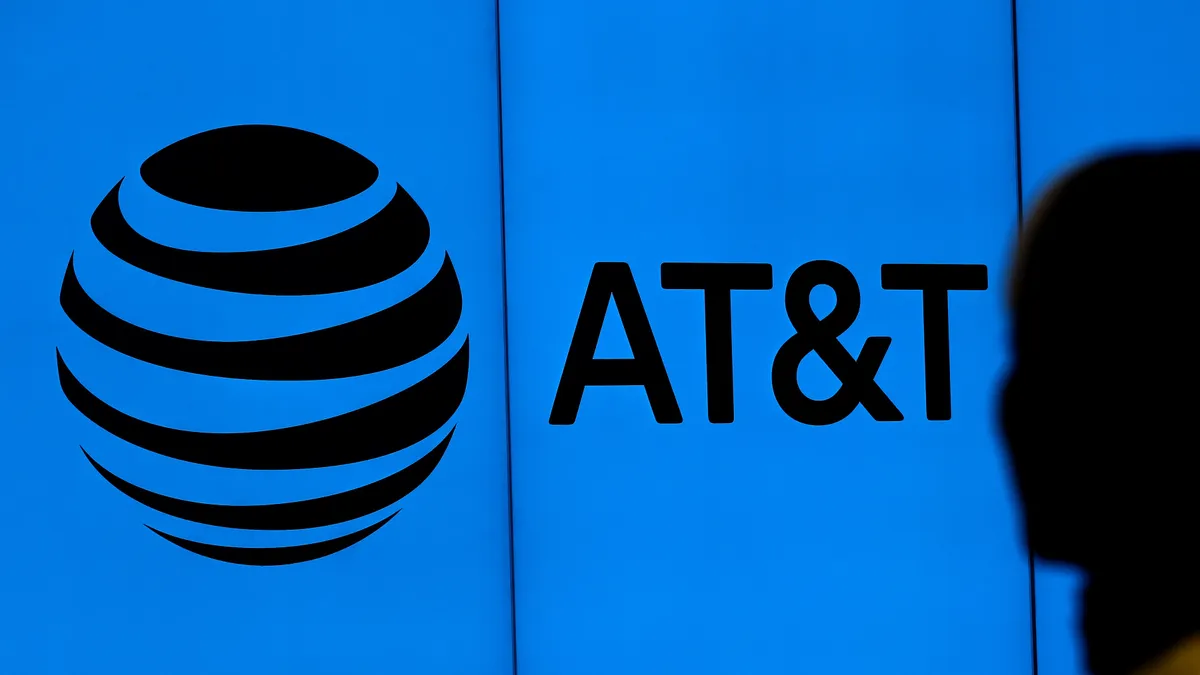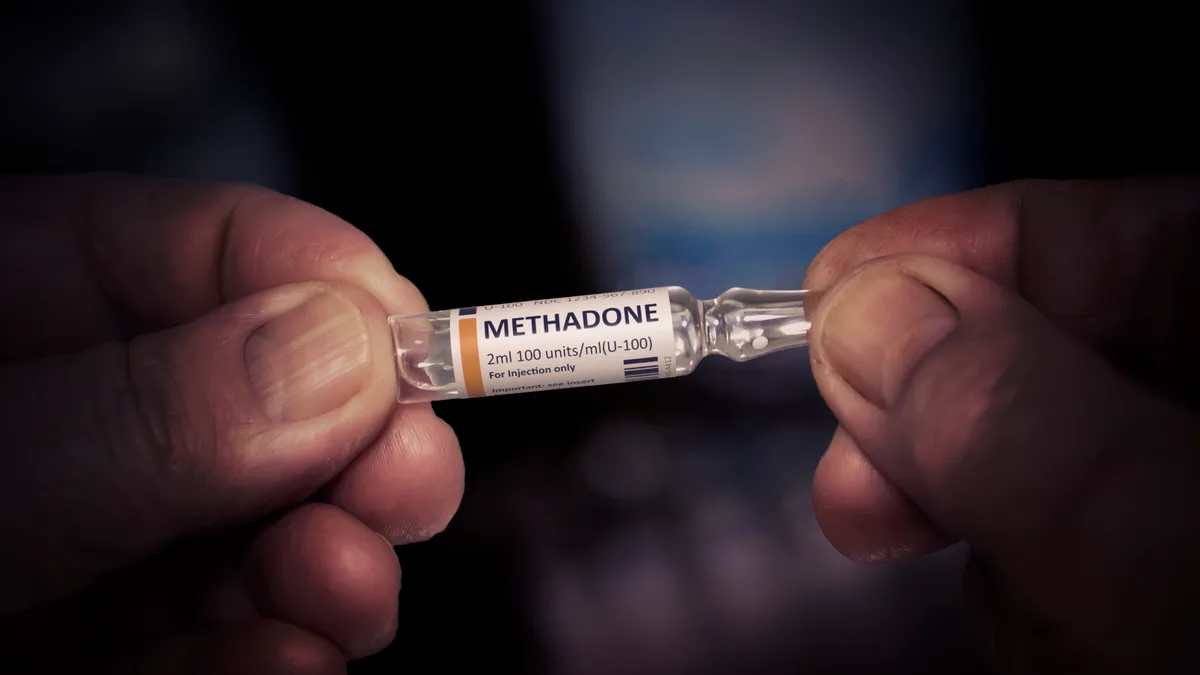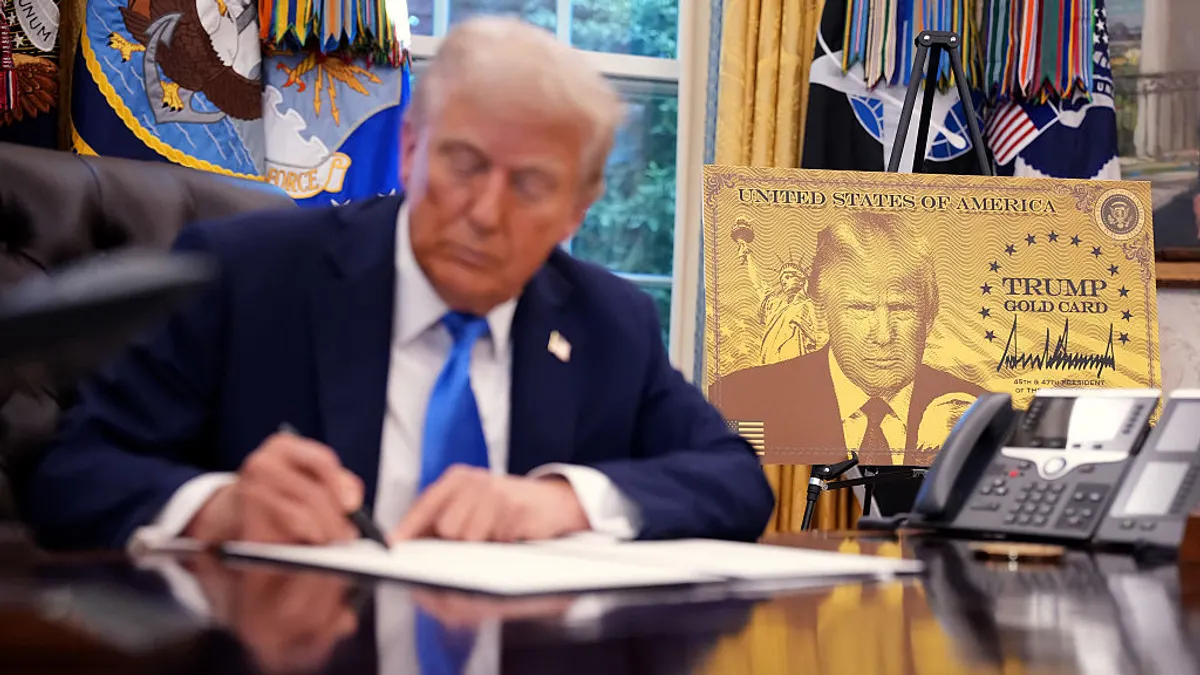Discrepancies over Pride Month decoration policy have become another point of contention between Starbucks and its unionized baristas.
Starbucks managers at some stores have told employees not to display LGBTQ+ pride decorations or to remove such decor if it is already on display, according to Starbucks workers and communications between store managers and baristas viewed by Restaurant Dive, HR Dive’s sister publication.
Starbucks Workers United also shared several videos that appear to show Starbucks managers removing Pride displays.
On Tuesday, Restaurant Dive visited several Starbucks stores in Washington, D.C. Two cafes did not have Pride decorations, and a third that previously had extensive Pride decorations had removed most of the decor, leaving a small display with a rainbow in chalk. All three stores were still selling Pride merchandise.
However, Starbucks told U.S. employees Tuesday that the company has not banned Pride decorations or made changes to its store decorations policy, according to a message viewed by Restaurant Dive. This message came hours after SBWU said the coffee giant had banned Pride decorations “in stores across the United States.”
The union claims that Starbucks workers in 21 states have reported that Pride decorations were taken down or never put up at their stores, despite displaying such decor in previous years.
Alisha Humphrey, a Starbucks worker and a union member in Oklahoma City, Oklahoma, said her region’s district manager told her store manager that the cafe, and others in the area, were no longer allowed to decorate for Pride Month.
In past years, Humphrey’s store hung Pride flags on the walls for the month of June, she said. This year, removal or preempting of Pride decorations occurred at both union and nonunion stores. “Our district manager had told people that it was a corporate change in policy that happened last July,” Humphrey said.
Andrew Trull, a spokesperson for Starbucks, said the company has not changed its decoration policy, and that he was unaware of any districtwide policies, or specific stores where management prevented workers from putting up Pride decor or removed extant decor.
However, Trull said he couldn’t rule out the possibility that there were some cafes where that occurred. “I will say there is potentially some level of truth in isolated circumstances since our local leaders are empowered to make decisions specific to their store,” he said. “But there has been no guidance given to our store managers and local leaders to deviate in any way from past practices.”
Anti-LGBTQ+ harassment prompts brands to retreat
Starbucks, Trull said, hasn’t experienced the kind of anti-LGBTQ+ harassment that has impacted other major companies this month.
Some conservative campaigns have threatened violence against employees at Target and Anheuser-Busch InBev, for example, in response to pro-LGBTQ+ statements and marketing by these brands.
Trull said it is possible Starbucks managers removed Pride decor if it constituted a safety issue, such as obscuring windows.
But Casey Moore, a former Starbucks barista and spokesperson for SBWU, said the public should not take Starbucks at its word.
Moore said Starbucks managers had cited harassment directed against Target — as well as a need for uniformity in decoration across stores and a lack of available hours to schedule workers to decorate — as reasons for Pride decoration removal.
Conservative anti-LGBTQ+ sentiment, especially transphobia, has mobilized consumers against major brands and led to a rise in hate crimes against LBGTQ+ people in recent years, alongside a wave of state legislation seeking to restrict the medical and civil rights of LGBTQ+ people.
Earlier this year, anti-LGBTQ+ activists accused Target of grooming children, a term once used to describe the process by which abusers psychologically manipulate victims, after a video falsely claimed trans-inclusive swimwear was being sold in children’s sizes.
AB InBev faced similar attacks by conservatives after Bud Light and Dylan Mulvaney, a transgender influencer, collaborated on a social media post celebrating Mulvaney’s transition.
Restaurants have not been immune to organized consumer harassment over LGBTQ+-inclusive marketing, either.
Cracker Barrel is facing calls for a boycott after posting a picture of a rainbow rocking chair, while Chick-fil-A came under fire for hiring a diversity, equity and inclusion VP.
AB-InBev backed away from its public support of Mulvaney, and Target removed some items from its Pride collection.
But Trull said Starbucks would not back away from supporting Pride. “The union is using a few select cases where there have been some inconsistent application of our general guidance and policies,” he said.
On June 13, the day the union publicly alleged Starbucks had banned Pride decorations, Trull shared photos taken that same morning of Pride decorations in two stores.
Moore clarified that the union was not alleging Starbucks had banned Pride decorations at every store.
Humphrey said she felt hurt when her store was not allowed to decorate for Pride Month. “It’s scary to be a queer person in a red state. Our local Target had to close because it had bomb threats,” Humphrey said. “I want [Starbucks] to be able to stand up to that, by letting us decorate for Pride, because it means so much more now than it ever has.”



